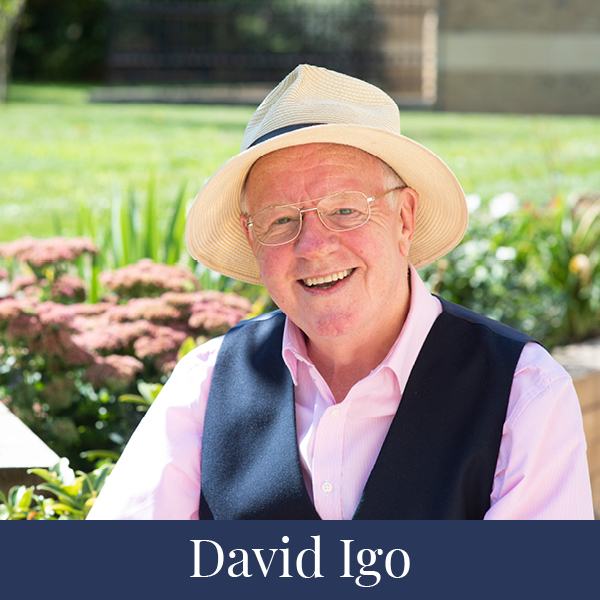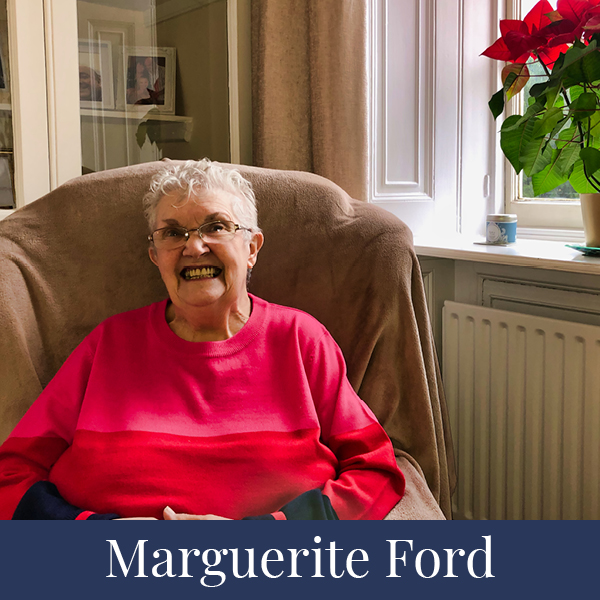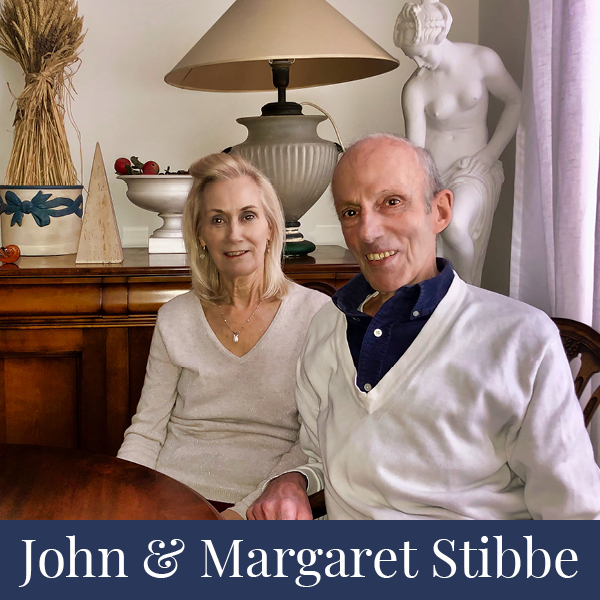



Our beneficiaries have some extraordinary tales to tell. Here is a selection of them…
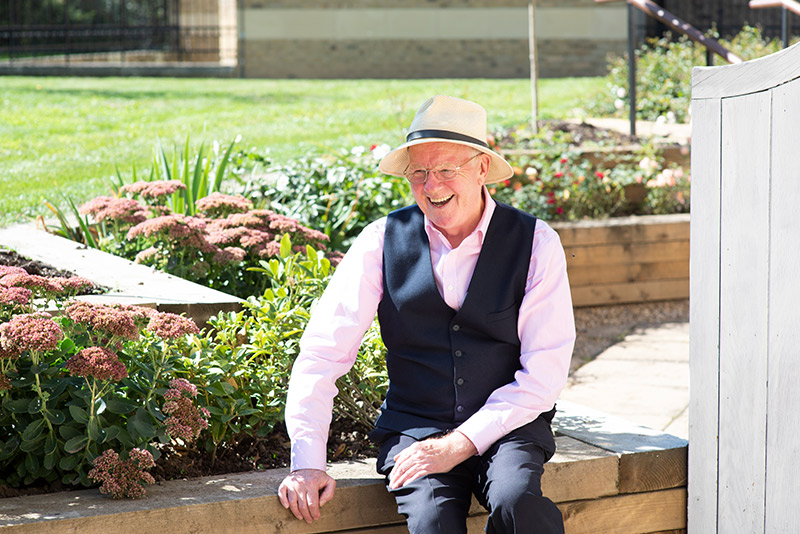
We knock gently on the door and are greeted by a dapper gent, well-dressed, suited with waistcoat and coiffered hair. David Igo welcomes us in to his spick and span flat, a man of order, precision and pride, as befits someone who spent the lion’s share of his life in the butchery trade. Barely have we removed our shoes than he is regaling us with a recipe for his favourite joint – the perfect brisket. “I’ll head over to Smithfields early,” he says, “to get the best choice. I’ll cook some chopped up marrowbone for three days, then let that cool and pop it in the fridge. There’ll be an inch of fat on the top – I use that to cook chips, then with the pure colagen from the bone, I’ll slow cook the brisket with chopped onions and carrots for six hours and finish it by roasting in the oven. Delicious,” he says with a cheeky smile.
Born on Christmas Day in 1944, David left school at 14 and became a butcher’s boy, delivering meat to customers around his native Derby. “I’d often run extra errands for them too, fetching them beer or cigarettes, so I had to cycle fast to not get into trouble with the boss. I’d already decided before then that I wanted to be a butcher. I vividly remember when I was 12 or 13 going to the local market town, to the slaughter house, and we’d kill a beast,” he says with a faraway glint in his eye.
David joined the Co-Op at age 15 as a trainee butcher, passed his driving test at age 17 and would then operated the travelling butcher van, an old Comma, around the area. “Then, when I was 20, I saw a butcher’s shop for rent. It was £5 4 shillings a week, including living accommodation. I took it, and never looked back.”
David still has his favourite butcher’s knife and sharpening steel, along with a raft of other mementoes relating to his trade – photographs, a paper bag from is shop, a scale weight – neatly on show in a display cabinet. An avid, but hugely selective, collector of ‘themed things’, David proudly shows us his collection of unopened cigarette packets in a matching illuminated display case, including some rarities such as Albany, Capstan, Park Drive and Guards (“all from pre-health warning days,” he says, “before the design of the packs was ruined”), which share display space with the ‘black and white’ theme containing a matching pair of old twist-dial telephones, dice, dominoes, chess pieces, Scottie dogs and a Hollywood clapper board.
“Before I moved here I was living in Bristol,” David recalls, “but I was looking to move to find a good landlord – I’d struggled for years in downbeat places. I’d often come to London and walked miles and miles looking for somewhere to live. I tried house sitting for people, looking after dogs, cats, fish, even tortoises. In the end I took 23 trips up the M4 on the National Express coach. My first trip I arrived in Holland Park, late, and had to stay in a boarding house, in a room with 20 people, and I was at the top of a three-bed bunk. I was 70! Sometimes I’d get a guestroom for £5, but because I wasn’t from London I wasn’t eligible for social housing. Eventually I came across Morden College, applied, had an interview and I was accepted. The relief was amazing. On the day I moved here, I came past the military horses in Hyde Park and I just burst into tears. I’d spent three years looking for somewhere to live, the stress had been immense and finally I have found the perfect place. I love it here. There is so much to do – I have friends all over, I’m part of the theatre club, and I’ve been in the annual review for the last three years. The top man here is a real gent, even writes with a fountain pen!”
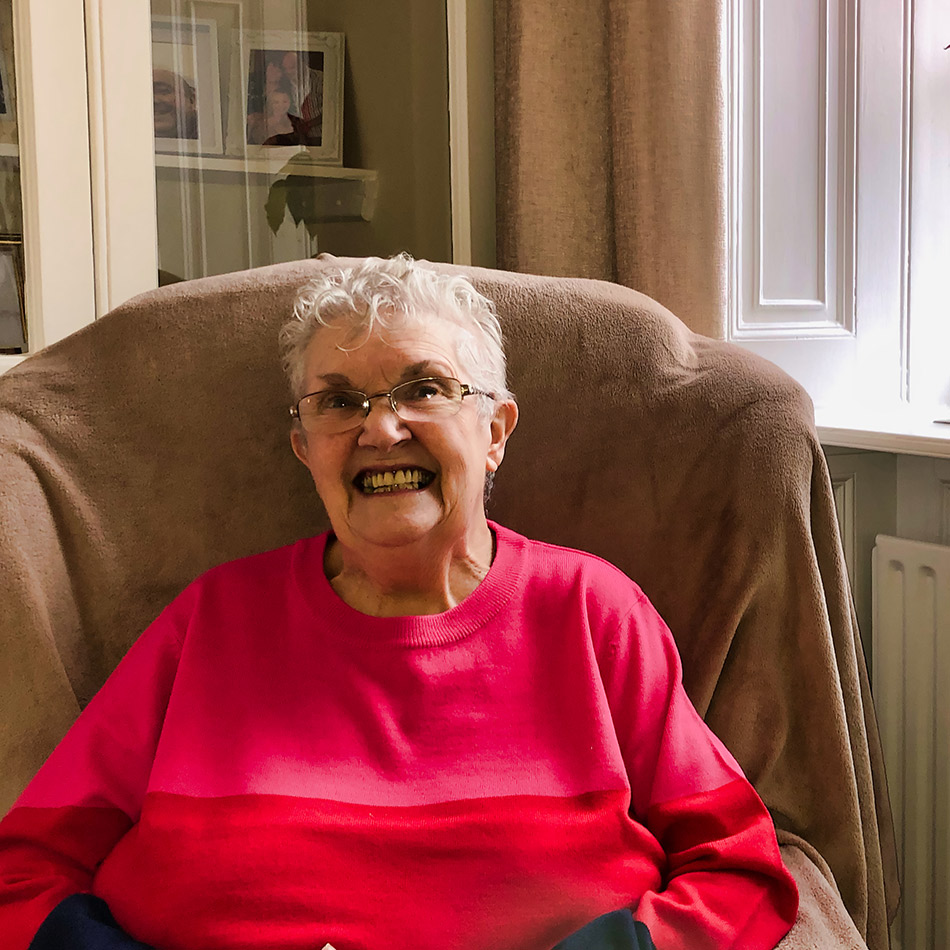
It was a friend who lives in Broadbridge Close that suggested Marguerite should apply to become a resident at Morden College. “‘Ooh, they won’t have me!’, I thought, but my son and daughter, who both live nearby, said why not – you’ve got nothing to lose.” One application and three interviews later saw Marguerite move in November 2016 into her cosy ‘up’ flat in the Quadrangle, the original building built by John Morden in 1695.
“I lived in north London as a child, then moved to south London and retired to Gravesend, so it really feels as if I’ve moved home,” says Marguerite. “I worked for HSBC in the city (they only had one branch back then) but I had to leave when I had my children; of course there was no maternity leave back in the 50s! Then I did some clerical work for Legal & General before I retired. Really, though, I’m so lucky to be here – I just love it. There are loads of social gatherings to get involved in, I love playing bowls and croquet in the summer, and for just £1 we can take a trip to the seaside for a nice walk on the prom. And shopping is so easy; hop on the bus and when you get back the porters carry your bags in for you!”
Living in the Quadrangle means there are no cooking facilities (meals are eaten in the lovely dining room), but Marguerite has a kettle, toaster, fridge and microwave for the little niceties. “If I’m not well, food will be brought to me here in the flat,” she explains, “and my laundry is done once a week. Everything is taken care of – it’s just brilliant, and I’m so fortunate to be here.”
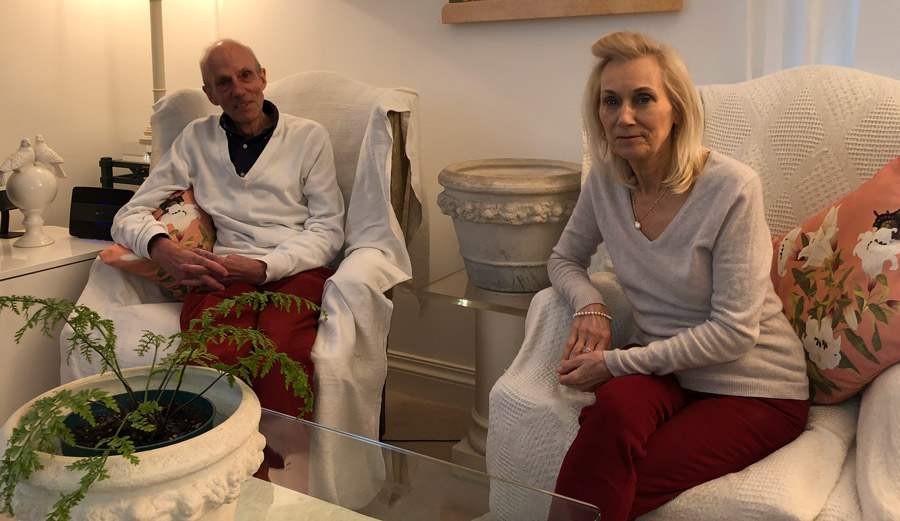
“Happy Chinese New Year,” greets John by way of a welcome on the day we visit him in the spacious ground-floor flat he has shared with his wife since they arrived at Morden College in April 2015. A quick glance around confirms this is a man well travelled, with discerning tastes and an appreciation for good design. A violin displayed on the sideboard suggests a musician. “Oh, no, I don’t play it, I just really like the shape, the curves, the proportions – they’re all spot on,” explains John. Which makes all the more sense when he reveals that he spent his working life designing bank notes. “I started with a company in New Malden when I was 22, and worked for them for 22 years, before moving to Switzerland for 10 years, designing notes for currencies all over the world and latterly teaching the process to students. Of course that was pre-Internet era when it was a lot slower to send designs from one place to another, so I would often go and work in the country involved to speed up the process. That also proved very useful to get to know their history and culture, an essential factor when designing the bank notes for many currencies. A wrong colour, or a wrong pattern, can actually be offensive in some parts of the world!
“The highlight of my career came when I was asked by Corazon ‘Cory’ Aquino to design a banknote to honour her assassinated husband Benigno in 1983. It was actually quite scary as her opponents got wind of it and I was nearly kidnapped and warned off! But I still did it. That was very special.”
Back in the UK after a torrid time in Switzerland, John and wife Margaret rented in Blackheath but work was hard to come by (he was no longer ‘allowed’ to work in the banknote design industry). Even harder times beckoned when their cottage was repossessed, but their community of neighbours with whom they got on very well suggested Morden College as a possible home.
“This place works so well on so many levels,” John explains. “We can still live independently, we even have a parking space for the car, and can join in with College life as much as we want. For a multi-religious man like myself, chapel life is central and very important, but only if you want it. There are services for both Catholic and Church of England, and attendance or otherwise is neither forced nor frowned up. The chaplain was probably once more of a figurehead than now, but I like it that we have one still.”
